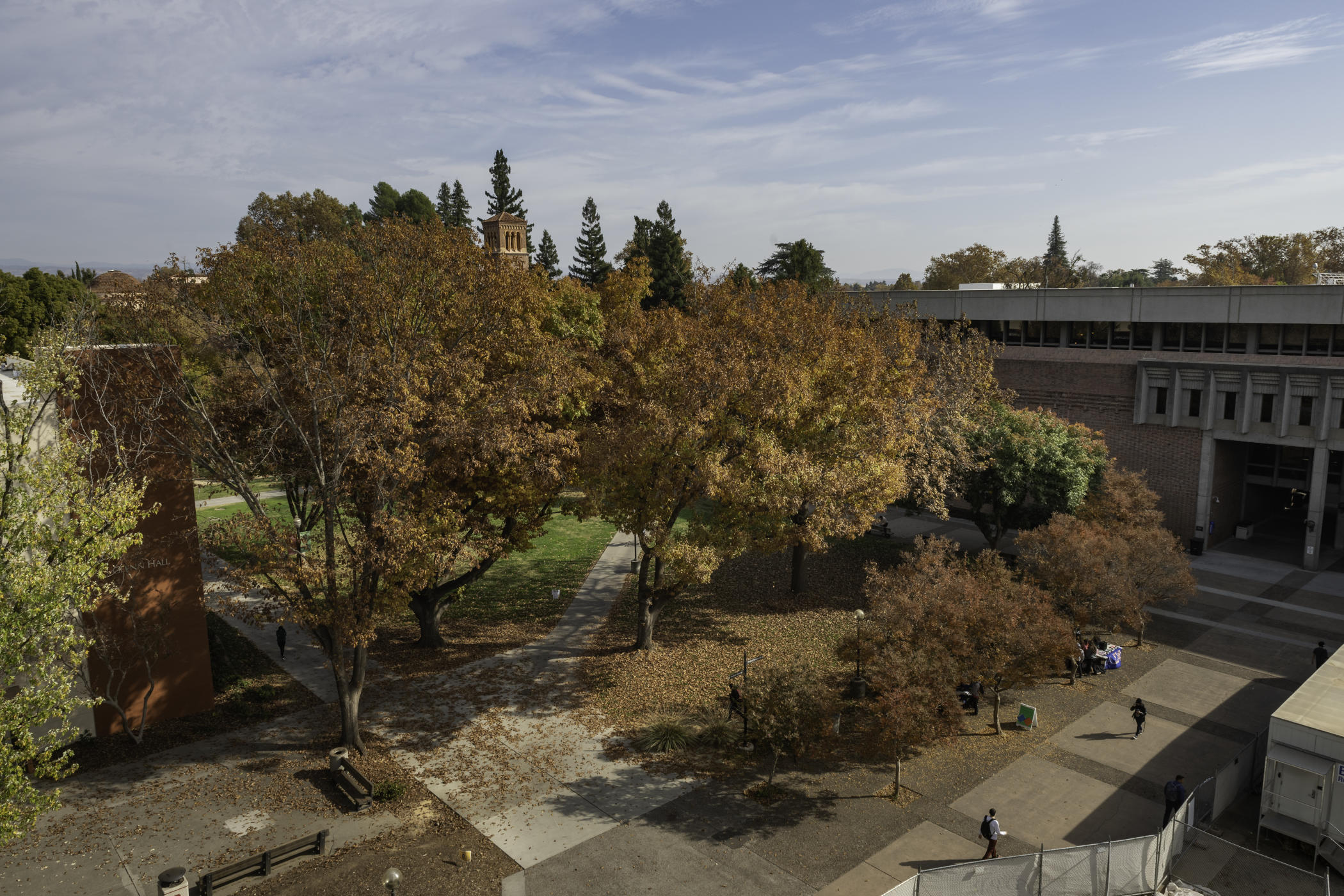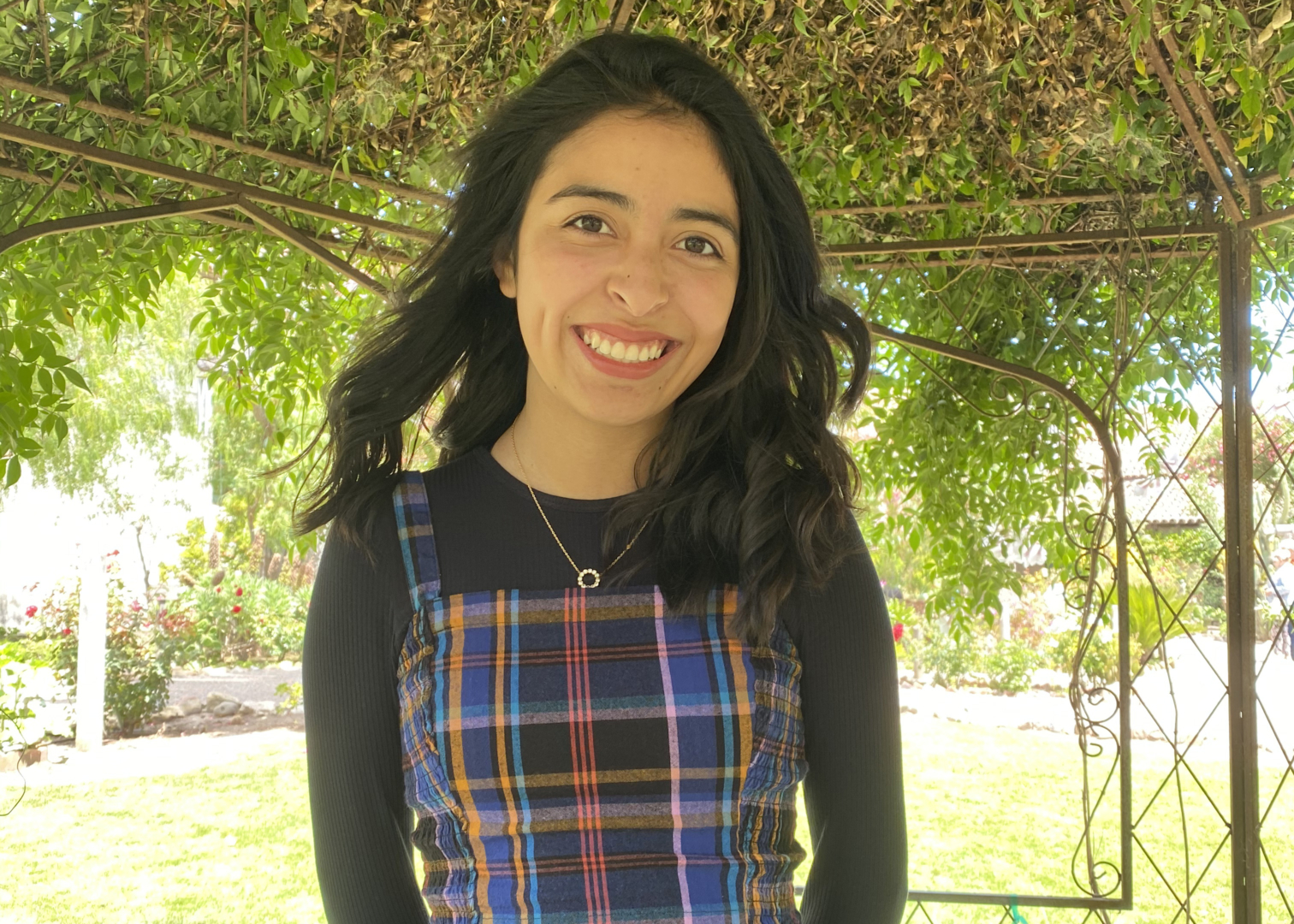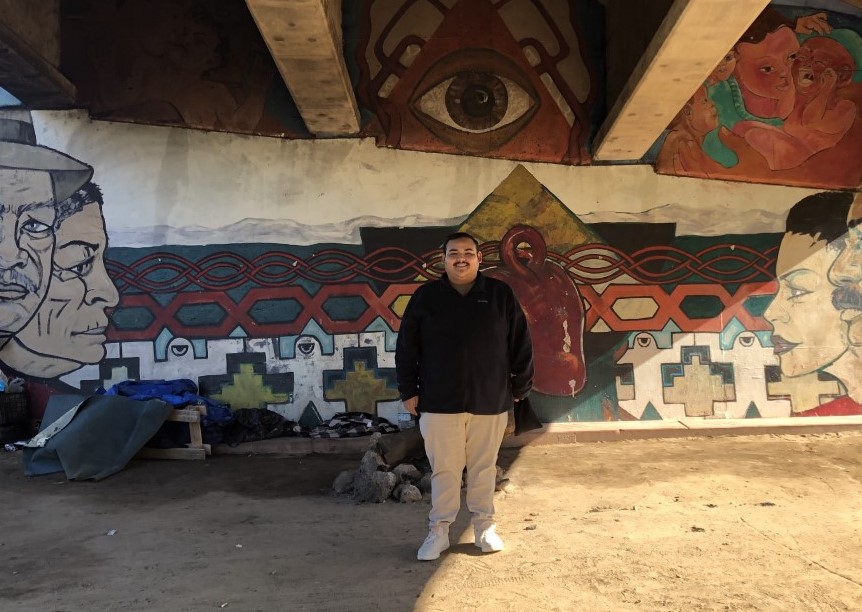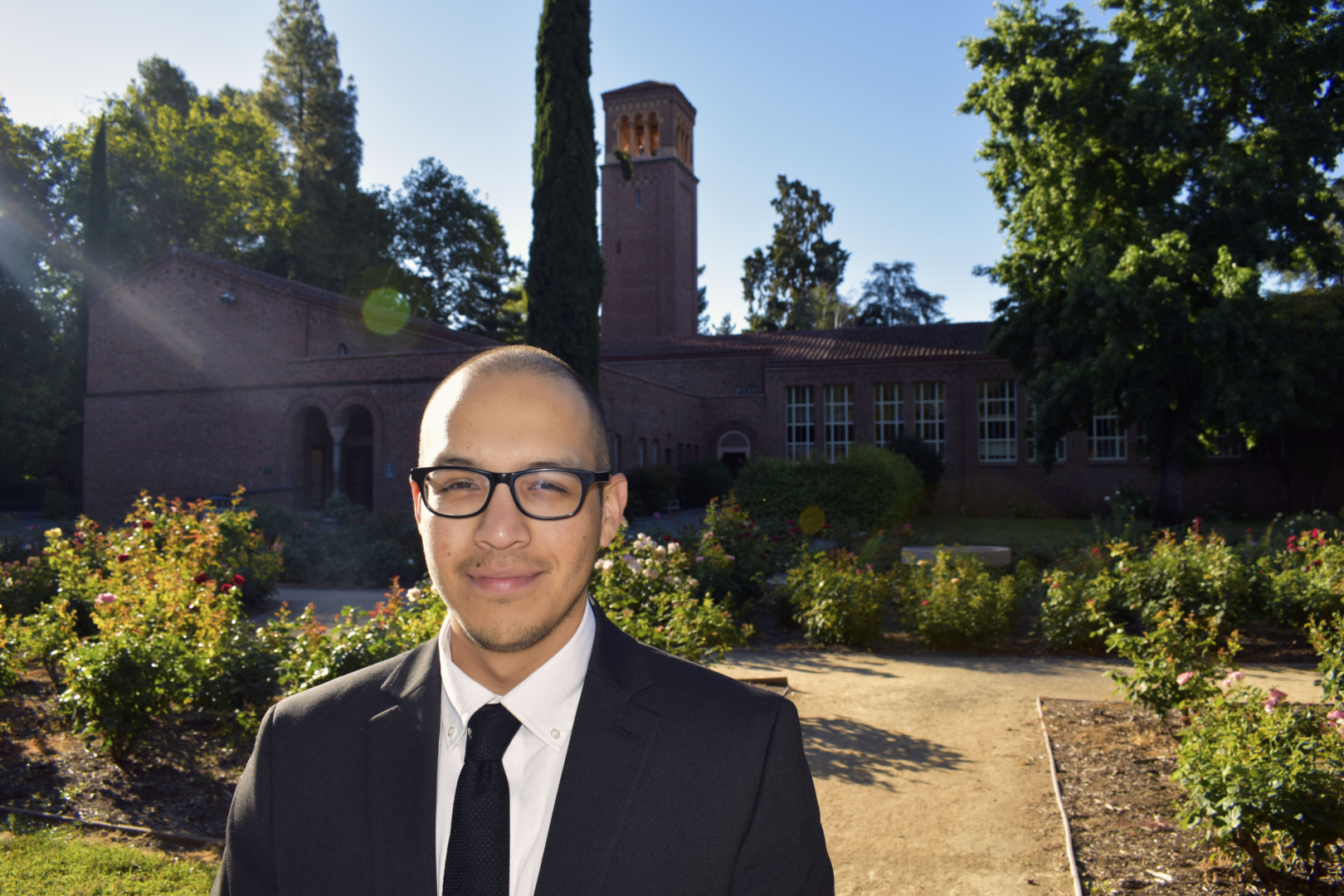History Majors Embrace Groundbreaking Research with Inaugural Adelante Grants

Students walk through the pile of leaves that collect at the base of the trees in Glenn Lawn on Thursday, November 14, 2019 in Chico, Calif. (Jason Halley/University Photographer/CSU, Chico)
By Steve Lewis
This summer, three history majors—Vivian Hernandez, Jose Valadez, and Juan Vega—tackled topics much of the world knows little about.
They stumbled upon parts of history that resonated with their curiosity and personal passions, and as part of the inaugural class of Adelante research grant recipients, they started what they hope will be a deep dive that illuminates the topics for the rest of the world.
The Adelante Pipeline to Postbaccalaureate Program is funded by a five-year, $2.9 million grant from the Department of Education to support Latinx and low-income students to prepare for, apply to, and successfully attain master’s degrees and teaching credentials.
In 2020, roughly 20 such grants were made in disciplines across campus. Here, three recipients from the Department of History share some of their visions and experience so far.
Vivian Hernandez
Writing Mexican Women Back into History
Vivian Hernandez hails from Hollister and is starting her junior year. A first-generation college student, she hopes to attain a master’s degree and a PhD in Latin American history. She ultimately aspires to become a university professor. Her research passion is the history of women in 20th-century Mexico.
“Although Mexican women are often excluded from the written historical narrative, that doesn’t mean they didn’t play a significant role in the revolutions and movements that swept Mexico in the 20th century,” Hernandez said. “As a historian, I plan to write Mexican women back into Mexico’s history.”
Her Adelante project on “The Impact of Contraception and Declining Fertility Rates on Mexican Women since 1968” has two phases and will provide grounding for her future projects.

This summer, she familiarized herself with the major themes about women in postrevolutionary Mexico and developed an extensive bibliography.
Now, she is focusing her energies on the 1960s and 1970s, tumultuous decades when Mexican women became active in student politics, openly challenged traditional gender roles, launched feminist movements, and began to limit their fertility—creating transformational changes in the ways that they perceived themselves and participated in the economy and political life.
“My colleagues who specialize in US history tell me that there are excellent studies of second-wave feminism that discuss how new forms of contraception and the decline in fertility led to transformative changes in the ways that women engaged the workforce and politics, but this literature is surprisingly thin in the Mexican context,” said department chair Steve Lewis, her faculty mentor. “Vivian is poised to make a real contribution.”
Hernandez said the grant has helped her develop her analytical and research skills outside the classroom, and prepare her for graduate school.
“I never thought I would have the opportunity to conduct undergraduate research, let alone be awarded a grant for it,” she said. “I’m so grateful to have been chosen to be a part of the Adelante Summer Research Program. I’ve learned so much from it and have grown as a scholar.”
Jose Valadez
Shining a Light on Unheard Stories of Mexican Americans
Jose Valadez is a first-generation college student from Santa Ana. He graduated from Chico State this spring with a BA in history, and he’s now in the teaching credential program. As part of the Adelante program, and with the help of his faculty mentor Shawn Schwaller, he plans to further explore the relationship between Mexican American identity and Chicano murals in the late 20th century United States, the topic of his historical research essay completed this spring.
“The faculty mentoring, funding, and other opportunities offered by the Adelante research program has assisted Jose with not only sharpening his research and writing skills, but also in social networking with other students and faculty,” Schwaller said. “With this, the Adelante program has provided a valuable stepping-stone between the BA in history he earned last spring and the teaching credential program he’s starting this fall.”
Valadez is particularly interested in how Chicano murals shaped and reflected Mexican American notions of community, how they related to the Chicano Movement, and the way in which they publicized histories left out of mainstream traditional narratives. His long-term goal is to achieve a master’s degree in education and work as a teacher and a counselor or principal at his alma mater and serve as a positive role model for Latinx and low-income students.

“Voicing the narratives of historically marginalized communities through muralism is a very unique interpretation of history. Being able to shine light on the Mexican American lived experience allows for their stories to be heard,” Valadez said.
Additionally, being part of the professional research realm has inspired him to further dive into silenced narratives.
“As a future educator in a pluralistic society, it is important to properly understand the many experiences that I will encounter in my own classroom,” he said, noting his gratitude to be part of Adelante. “As a first-generation Chicanx student, having the opportunity to voice the lived experiences of myself and countless others is a great feeling.”
Juan Vega
Solving History’s Mysteries Through Research
Graduate student Juan Vega grew up in Stockton and has already compiled an impressive record as an historian at Chico State. He is currently in the master’s program in history and has his sights on a PhD. His thesis project examines the Mexican government’s decision to dissolve its decades-long contract with the controversial US-based Protestant missionary organization, the Summer Institute of Linguistics (SIL), in 1979. The thesis considers the mechanisms the Mexican government employed to improve the lives of indigenous people, incorporate the marginalized, and maintain control over an increasingly dissatisfied populace.
“Juan hopes to enter the PhD program in Latin American history at UC Davis, which is one of the best in the country, and we hope that this thesis will open that door for him,” said Lewis, his faculty mentor. “This summer, with Adelante funding, he produced two thesis chapters that read like what you’d expect to find in a doctoral dissertation. He is most certainly writing a pathbreaking, original thesis.”
Vega’s research incorporates and interrogates the secondary literature concerning the SIL’s activity in Mexico. He has also located several hundred documents from archives in Mexico and the United States.

Taken together, his source materials suggest that the Mexican government had little choice but to rely on the SIL’s missionary linguists in remote, indigenous regions in Mexico. But in the tumultuous 1970s, the Mexican government’s reliance on the SIL became a political liability. As Vega’s research is revealing, the government publicly expelled the SIL in 1979 but privately allowed the missionary linguists to continue working in rural Mexico because they were as indispensable as they were politically reliable.
The Adelante grant has been invaluable, Vega said, in allowing him to pursue the research and writing that is fundamental to his project.
“In high school and during my undergraduate education, my teachers mentioned that funding for graduate school would be hard to obtain,” Vega said. “Knowing this, I never imagined that I, of all the people on campus, could get a grant to do research from a relatively small school in the CSU system. I am very grateful for this opportunity and all the doors that this research may open for me.”
Steve Lewis the chair of the Department of History and a proud faculty mentor to two of its three Adelante grant recipients.


